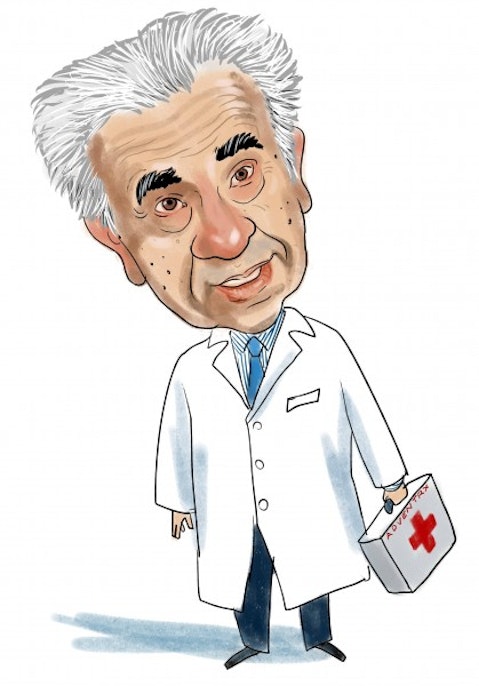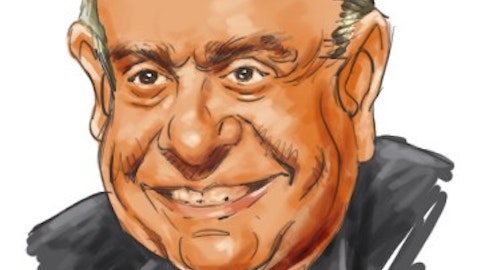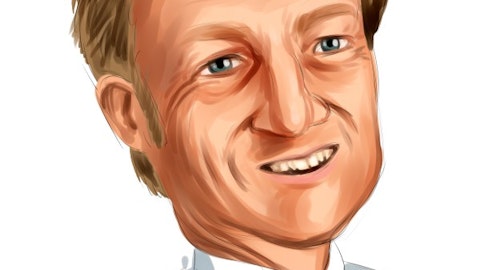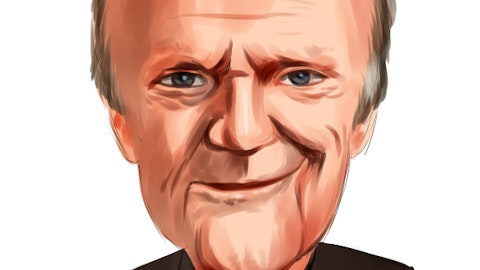Chairman of Barclays Resigns (NYTimes)
Marcus Agius, the chairman of Barclays, resigned on Monday, less than a week after the big British bank agreed to pay $450 million to settle accusations that it had tried to manipulate key interest rates to benefit its own bottom line. The resignation comes as Barclays tries to limit fallout from the case, which is part of a broad investigation into how big banks set certain rates that affect borrowing costs for consumers and companies. Since striking a deal with American and British authorities last Wednesday, the Barclays management team has faced increasing pressure from politicians and shareholders to take action.
All work, little pay for Icahn in Amylin (Reuters)
It took Carl Icahn four years, a bitter proxy fight and litigation to make an estimated 22 percent return on Amylin Pharmaceuticals Inc. He could have made about the same amount of money had he just bought a basket of healthcare stocks instead. The return on Amylin will add to the debate about Icahn’s record as a stock picker and the effect he has on a company he targets. It could also play into the dynamics of his next high-profile battle in the healthcare sector with Forest Laboratories Inc.
Tudor Said To Open First Macro Hedge Fund In Decade (Bloomberg)
Tudor Investment Corp. opened a $500 million hedge fund, its first new fund to bet on macroeconomic trends in a decade, according to four investors briefed on the matter. Founder Paul Tudor Jones won’t be among the 14 portfolio managers of the Tudor Discretionary Macro Portfolios, which was seeded with $150 million from the firm, said the people, who asked not to be named because the information is private. Jones oversees two other funds, including the main Tudor BVI Global, which has $9 billion in assets.
In Caymans, It’s Simple to Fill a Hedge Fund Board (NYTimes)
Just off the tarmac at the Grand Cayman International Airport, visitors were recently greeted by colorful banners advertising the Caribbean island’s sunny offerings: waterfront seafood restaurants, tax-free shopping — and hedge fund directors for hire. In the last decade, as hedge funds ballooned in size and number to become a dominant force in the investing universe, directorship services have grown from a cottage industry into a big business on the Cayman Islands. Many funds run by United States money managers have their legal residence here for tax reasons. And because of a quirk in the island’s tax code, these funds must appoint a board.
Hedge funds bet on a Hertz — Dollar Thrifty merger (MarketWatch)
Since Mar 31, Pentwater Capital Management has increased its total holdings of Dollar Thrifty Automotive DTG +0.73% by 35%. In a recent flurry of purchasing activity, this hedge fund now holds a total of 3.2 million shares of Dollar Thrifty. Why has this company positioned itself as an 11.4% owner of Dollar Thrifty Automotive? Over the past month, the Pentwater Capital Management has spent an average $78.59 per share to increase its hold on Dollar Thrifty. The car rental company’s shares are now trading at about $80.96, and it is Pentwater’s only major investment in car rental. Pentwater specializes in merger arbitrage and successfully bet on Google’s GOOG +0.01% Motorola Mobility, Express Scripts’ ESRX +1.90% Medco, and Kinder Morgan’s KMI +3.20% El Paso mergers recently ( check out the other stocks that Pentwater ‘ s manager Matthew Halbower is trading right now).
Singer hedge fund, others in cross-border fight with Mexican industrial elite (WashingtonPost)
On a scorching April morning in Monterrey, Mexico, Enrique Garcia, Vitro’s local plant manager, crosses under a mural that commemorates the 100th anniversary of the company’s first glass factory. He points to brick structures from the original plant. Then, with visitors in tow, Garcia heads toward a steel-and-tin building where machines the size of minivans churn out 3 million bottles a day for Avon Products, Coca-Cola and Francis Ford Coppola Winery. Vitro is Mexico’s biggest glassmaker and among the nation’s top employers, with 17,000 workers.
Hedge fund manager looks for bargains (SFGate)
On a dreary Monday morning in May, rain pelts the windows of Omega Advisors Inc.’s 31st-floor conference room in New York. Inside, Leon Cooperman and his 14 analysts are trying to come up with ways to make money amid squalling markets. In a single dismal month, half of the hedge fund’s gains for the year have evaporated. “The market is very sick,” Cooperman said. That’s not necessarily bad news for Cooperman, a blustery billionaire from the South Bronx who first made his name as a stock picker during 25 years as an analyst at Goldman Sachs Group Inc.
Alix Capital reveals trends in alternative Ucits (Opalesque)
Alix Capital, the Geneva-based provider of the UCITS Alternatives Index (UAI) family of indices, has published its latest survey on the UCITS hedge funds industry, the UCITS Alternative Index Trends Survey. The survey assesses outlook for the UCITS hedge fund sector and views on UCITS fund of hedge funds. Results show that equity market neutral, macro and volatility strategies are likely to be the most popular allocations in the next six months. At least 50% of respondents for these three strategies intend to increase their allocation, with volatility the highest at 55%.Respondents are most likely to decrease their allocation to fixed income and long/short equity, with 24% and 18% of respondents respectively indicating allocation to these strategies will be reduced. Equity market neutral appears to be enjoying a steady increase, with intentions to increase allocation recorded for the last 18 months.
Call for tougher rules on US hedge funds (FT)
Manny Roman, a leading light of the UK hedge fund industry, has called for tighter regulation of the sector in the US to help prevent future scandals. “It is still possible to start a hedge fund in New Orleans with $20m under management, an administrator that no one has heard of, and with no need to register with the SEC [Securities and Exchange Commission],” said Mr Roman, chief executive of GLG Partners and chief operating officer of Man Group, which has $59bn under management, at last week’s Fund Forum conference in Monaco.
ABS Investment Management to launch an emerging markets equity long/short fund of hedge funds (Opalesque)
ABS Investment Management LLC, the Global Equity Long/Short Fund of Hedge Funds manager with over $3.75 billion under management, announces today the launch of their first commingled emerging markets equity long/short fund of hedge fund product. Founding principal Alain De Coster said, ‘The fund will be a long biased emerging markets FoHF that is expected to have 50-75% net exposure to emerging market equities. The product will benefit from the firm’s long term global focus. Our team has been investing in emerging markets since 1994 and today over 20% of ABS’s AUM are invested in emerging markets via our flagship products and an emerging markets separate account that we have been managing since 2005. We believe this product will be viewed as a lower volatility alternative to long only emerging market investments.’
Suite lowdown on Falcone’s $39M digs (NYPost)
Even by super-rich St. Barts standards, Phil Falcone’s $39 million Caribbean estate is over the top. The hedge-fund billionaire’s villa — seen above — on the exclusive island enclave boasts seven bedrooms, three pools and panoramic ocean views. In the largest of the three pools is a glass pyramid that serves as the skylight for the state-of-the-art fitness room below. Five of the bedrooms are named for famous designers like Hermès and Christian Dior. That includes the “Louis Vuitton” master suite, with floor tiles arranged to resemble the designer’s logo stretching from the in-room pool area to the bathroom, according to a person who has visited the compound
John Paulson Remains Bullish On Gold With $4,000 Target (GoldAndSilverBlog)
John Paulson, hedge fund titan, seemed invincible in the opening days of 2011. Based on a huge bearish position in mortgage bonds, Paulson’s hedge funds earned an astonishing $15 billion during 2007. Paulson’s winning streak continued for three years and by the end of 2010, Paulson’s success had attracted huge amounts of new investor money. By the end of 2010, the amount of money under management in Paulson’s funds had swelled to over $32 billion. During 2010 Paulson personally made $5 billion and had become an investment legend.
Funds Win With Bull Bets Before Biggest Rally Since ’09 (Bloomberg)
Hedge funds lifted their bullish commodity bets for a third week, just before a European agreement to contain the region’s debt crisis spurred the biggest rally in raw-material prices in three years. Money managers increased their combined net-long positions across 18 U.S. futures and options by 15 percent to 724,783 contracts in the week ended June 26, Commodity Futures Trading Commission data show. That’s the biggest gain since January. Corn holdings rose to the most in five weeks, and sugar wagers climbed to the highest since mid-April.
European Commission to add short selling, OTC derivatives rules (Opalesque)
The European Commission has adopted new technical standards for short selling, the new rules are aimed at reducing the risk of settlement failures linked to naked short selling and changing the way shorting activities are reported. The new rules also set out the details of the so-called “locate rule,” which make sure that short sales never fail to deliver. The rules are the result of work with the European Securities and Markets Authority (ESMA) and also detail which shares ESMA will count as part of a short sale under the Short Selling Regulation. Under the terms of the new rules, significant net short positions will have to be disclosed on a central website that will show to the public both current and historical short position data. Settlement agreements on short sales will also have to have two confirmations by a third party. Separate specific agreements can be made for intra-day short selling.
Cube Capital opens Cube Global Opportunities to external investors (Opalesque)
Cube Capital, the $1.3 billion global alternatives investment firm has opened its $100M Cube Global Opportunities (CGO) fund to outside investors for the first time since its launch in May 2009. Cube Global Opportunities is an event driven fund with a mandate to invest long and short in equity, debt and derivative securities globally. The fund pursues an uncommon approach to event driven investing and takes advantage of the opportunities it perceives across select countries and sectors predominantly in Asia and Europe while investing opportunistically across the capital structure.
Barclays Manipulates Libor While Auditor PwC Snoozes (Forbes)
What do Barclays, JP Morgan, MF Global and Chesapeake Energy have in common? They are all examples of risk management and audit failures and the auditor of all of them is PricewaterhouseCoopers. It seems like only yesterday when everyone was asking me if Ernst & Young would be the next global audit firm to buckle under the weight of costly, and time consuming, litigation, especially as a result of the failure of Lehman Brothers.
Linde of Germany to Buy Lincare for $3.8 Billion (NYTimes)
Linde of Germany said Sunday that it had agreed to buy Lincare Holdings, a Florida-based provider of respiratory therapy equipment for homes, for around $3.8 billion to expand its product offerings. Linde, one of the biggest providers of industrial air and gas products in the world, will pay $41.50 a share in cash. That represents a 22 percent premium over Lincare’s closing price on Friday. It is also a 64 percent premium to Lincare’s closing price on June 26, the day before The Financial Times’s Alphaville blog reported that the company might sell itself to Linde.
Ron Geffner says we’re past the regulatory tipping point (HedgeWorld)
As a partner and head of the financial services group at law firm Sadis & Goldberg, as well as vice president at the Hedge Fund Association, Ron Geffner has a vested interest in seeing how regulatory reforms tied to the Dodd-Frank and JOBS acts play out. His clients are hedge funds, and it will be his job to help his clients deal with the new rules. So far, he’s not liking what he’s hearing from regulators. Geffner said recently that some of the discussions about certain JOBS Act rule proposals have him thinking the country has passed a “regulatory tipping point.”
Why Activist Investors Hold All the Aces (InstitutionalInvestor)
Here is yet another reminder why small, individual investors should not be spending their time and savings on buying individual stocks. The savvy pros always manage to find some sort of advantage. Case in point: California-based activist investor Relational Investors, co-founded by Ralph Whitworth and David Batchelder, has identified its newest target — Dallas-based Flowserve Corp.
Soros is right about Germany – keep printing his articles (FT)
Sir, Contrary to Tim Young’s claim (Letters, June 28) that he cannot be the only FT reader who is “tired of seeing articles by George Soros arguing that Germany must do this or that to save the euro”, this avid reader of the FT not only finds Mr Soros’s views on the euro sensible but also hopes that the FT keeps printing his commentary as frequently as possible to enlighten readers on global economic and financial issues. Mr Soros is right on the mark by arguing repeatedly that German political leaders (represented by chancellor Angela Merkel) hold the key.
Bishops take on Soros (Calcatholic)
We became aware on June 7, that news media received a memo from John Gehring, casting aspersions on the Catholic bishops and their educational project on religious liberty, the Fortnight for Freedom. Mr. Gehring is Catholic Program Director of “Faith in Public Life. . . ,” a group founded with help from a pro-abortion group long directed by John Podesta called the Center for American Progress. . . (CAP); like the CAP it has received funding. . . from billionaire atheist George Soros. . . . These do not seem like eminent qualifications for telling bishops how to guide the Church.
Global markets to plunge further in 12 months: Mark Faber (MoneyControl)
Global market sentiment improved following the deal aimed at easing concerns over the eurozone’s debt and banking problems. Given that world markets are in oversold territory, Marc Faber, Editor & Publisher, The Gloom, Boom & Doom Report, Marc Faber Limited is of the view that equities may rally for some time more, however, the global picture has still not changed drastically. “Don’t forget July is a month of seasonal strength and that we are coming into the election, there maybe some more money printing and fiddling with statistic sense of ours. So the market may actually rally a bit more.






